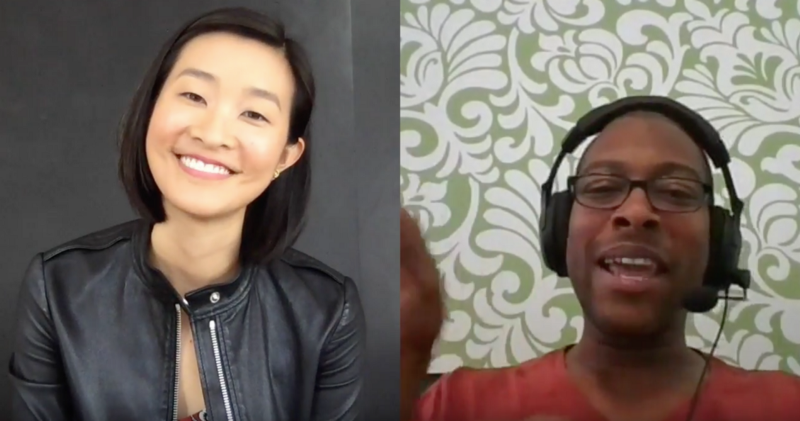As the founder of a 100+ person company who recently turned down an 8-figure offer for sale, Wil talks about naiveté, transparency as a leader, and not enabling your employees to lie to you.
Claire: Hi everyone, I’m Claire Lew, and I’m the CEO of Know Your Company, and today I’ve got a real special guest with me. I have Wil Reynolds, who is founder of SEER Interactive, an incredible SEO firm that he started, I want to say back in 2002.
I met Wil at this really interesting, invite-only small conference just for digital agency owners called Owner Camp. I remember Wil telling me a story of how he started his company. It was incredible. I’ve been inspired ever since. Been a big fan, and honored to be able to chat with him today. Thanks for being here, Wil.
Wil: Of course. My pleasure. Thanks for having me.
Claire: Sweet. Okay, so Wil, I’ve got this one question I want to ask you about leadership, which is…
What’s one thing — or it could be several things — that you wish you would have learned earlier as a leader?
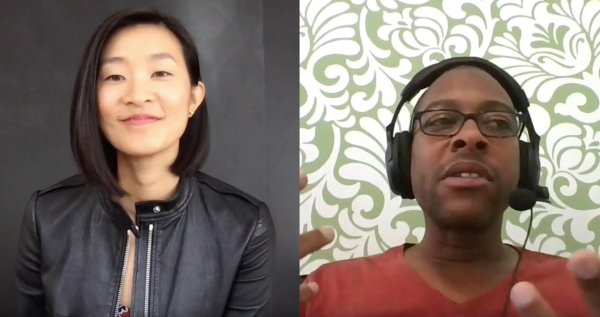
Wil: The first thing that pops to mind for me is, I kind of waited too late to hire support. What I mean by that is, I’m kind of a hustler. I’m a, “I’ll figure it out.” I’m the kind of guy that’s like, “Well, I can go into QuickBooks and cut payroll.” And I underestimated the amount of people that I would need to help me continue to keep the company moving as we grew. I kept holding onto things that (1) I was not good at and (2) was distracting me from the thing that I could create value in the company, because I was just like, “Oh, we don’t need someone.”
So I think one of the biggest things that I wish I’d done earlier, was hire every single executive that I hire — I wish I would have hired them a year to two years earlier. I was in my hustle mode, doing it myself, and doing a massive disservice to my team in the process.
Claire: Wow. Being a business owner myself, growing the business, I can absolutely relate. It’s when you get that person in who, you’re like, “Oh, I can totally do this myself,” and they start doing it for you, it’s like the world changes. Was there for you someone…
Wil: Seriously…
Claire: Yeah, I’m sorry. Keep going.
Wil: I was going to say, when I was cutting payroll, there’d be just dumb shit would happen. Like, I would forget that Monday was a holiday. So all of a sudden, I’d be like, “I’m going to cut payroll on this day,” and be like, “You can’t cut payroll that day.” And then I’m like, “Oh, crap. People aren’t going to get their checks for a week.” So then, I would sit there and mail checks out, and forget to take the taxes out. So at the end of the year, my team members were getting hit with like taxes owed, and they were like, “Yo, dude, you didn’t take the taxes out?” And I was like, “Oh, my god. I’m messing stuff up.” Then that created so much more work for me, and took me away from where I drove that value in the business.
Claire: Absolutely. Absolutely. Wow. What else, Wil? What else do you wish you had learned earlier? I know when we’ve talked in the past, you were always sort of sharing all sorts of lessons from building your business.
Wil: I wish I would have, well, I was young when I started SEER. I was very naïve about people.
Claire: Okay.
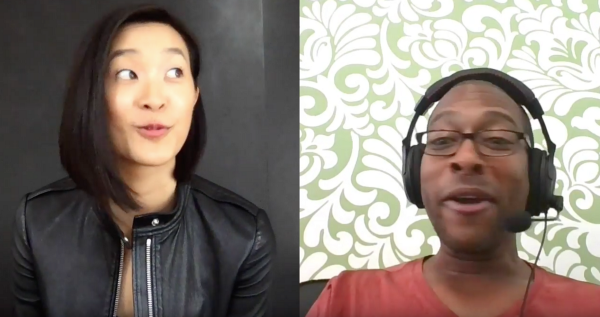
Wil: I kind of thought that if SEER was super transparent with people, like we have an open book, let’s people know what the company was making and all that stuff. And I kind of built SEER in the vision of all the things I wished every company I ever worked for would have done, because I never would have built SEER if every company I worked for had been a certain way. And I thought wrongly so, that if I had built the company like that, people would just want to stay with me forever.
And as naïve as that may sound to most of the people that are watching this, I was naïve. And I just thought that if you built a company with a certain type of heartbeat, and a certain type of ethos, and a certain type of openness and transparency, and a certain type of sharing the profits, then people would stay forever. And by forever I mean have an average tenure be five, six, seven years.
And it really hurt. I took it way too personally when people would leave early on.
Because I was kind of under this impression that’s like, “Dude, you know how much the company makes. You can see how much you get as a result of our profitability. You can see the kinds of things we’re trying to do as a company.” And I didn’t give really give people the latitude to change their minds about what they wanted to do, or to change the fact that they wanted to work at a different place and do the same thing. I used to take it way too personally. And that used to make me a very bad manager early on, because I was still figuring myself out at that time.
Claire: Right. I think, wow, that’s incredible. I think the amount of self awareness that takes to process and realize, “Wait a second. I’m getting too wrapped up into this emotionally. I’m equating my sense of identity with the company’s identity, and everything I’ve wanted it to be.” And how I think for a lot of founders, it’s almost like popular wisdom when you’re building a company that that should be the case. You’re supposed to put your heart into it.
A lot of business owners I think go into business because they’re trying to create a workplace that they wish they had. And you’re saying, “Don’t get too caught up.” Because here’s the thing, I mean, it sounds like to your point, people are going to leave regardless of what you build, regardless of what you’re creating. And that’s not always bad.
Wil: No, it’s not.
Claire: Is that how you think about retention? Is that how you think about keeping folks? It’s not as like, “Oh, my god, I need to keep every single person.” How do you think about that as a leader?
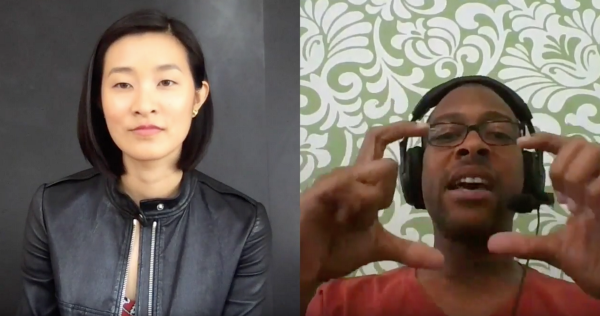
Wil: It’s so interesting, because I evolved on this. Now I sit with every new employee at SEER, and I tell them, “I don’t care how long you’re here. I care about the impact that you have.” I was like, somebody can be in this company for four years, and not do half the work that somebody in six months can do. Right? Somebody in six months can completely rebuild the way that we did something and then bounce, and add more value than somebody who’s just been saying, “I ain’t doing the same old thing every day for four years.”
So I tell people, I’m like, “Before we met, our trajectories were on different places. Now that we’re together, the only thing that matters is that we do something positive for this company while we are together. And I want you to be able to look back at the time that as you leave, and we part again, and whether I choose that it’s time for you and I to part, or you choose that it’s time for you and I to part, we should be able to look back at the time that we were together, and know that we had an impact because we worked on something together.”
I always say, “You take care of us as it comes time for you to leave, then we’ll put you on our alumni network. I will contact other CEOs and people that I know to help you find your next gig. But in order to get there, I’ve got to feel like we did something great together. And that you’re giving me the heads up.”
We just recently recorded a video about two of our employees who decided to leave. You can really see how I’ve evolved on this. Now I’m publicly talking about, and recording videos about people who came to us and told us, “I want to leave this company.” And what that was like.
We want to open more of a dialog between people who are kind of feeling it’s not the right thing, but yet they’re not sure, but they know they can’t say that to their company because there’s fear. And we want to try to help companies eliminate some of that fear, and make it something we want to talk about.
Because if you don’t openly start talking about this, you’re forcing your team members to lie to you. Right? Let’s call it at the end of the day what it is. If you take a sick day, you’re going somewhere to interview for a job, you have just lied. And that is a value that anybody really enjoys. Nobody enjoys being lied to that I know.
So what we felt is, we had to make it a safe place for people to feel like they didn’t have to be dishonest, and they could say to us, “You know what? I think my time at SEER is starting to come to an end.” And that they weren’t going to be mistreated or fired on the spot, and unable to pay their bills, which is what was going through their minds about, “If I’m transparent with you guys about this, and you go ‘Fuck you! You’re replaceable,’ then all of a sudden it’s like I can’t do that because then how am I going to pay my bills?”
So if you want to have that kind of transparent style company, I think it’s incumbent on us to kind of show people that, hey, your coworkers, some of them have come to us and said, “I don’t know where I’m going to go next, but I know it’s not going to probably be here.” And then watching SEER encourage that, help people with their next opportunity and treat them well, I think that’s really important for people to see.
Claire: I think that’s phenomenal. And I honestly, off the top of head, I can’t think of many companies, if any, off the top of my head, that think about that transition with such transparency. And to your point, I definitely, when I used to work for someone, I’ve definitely gone to interviews, and like you said, called a sick day. And yeah, you’re lying. That’s the thing. It’s like you are giving-
Wil: You’re lying.
Claire: Yeah, you’re lying. You’re giving space for your employees to lie. And what kind of environment does that create, right? I mean, for you as an employer, it gives you also this advantage of now you can prepare for that transition, instead of being just super surprised by it.
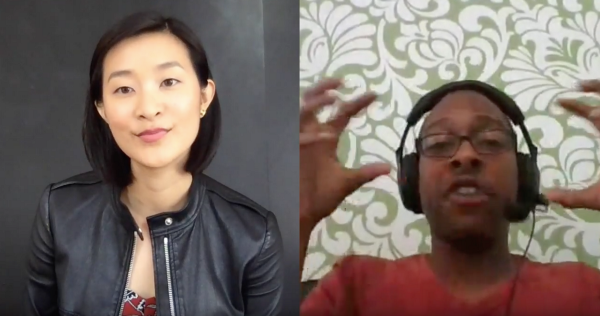
Wil: Bingo. It’s interesting. Right? If somebody goes on an interview and tells us they were taking a sick day, then they’re also upset when they’re like, “Oh, why is the company doing this because I don’t know about it?” Well, because we’re doing the same thing you do. When you were doing something that you don’t want me to know, you run off and just do it, and don’t tell me. So why am I any different? You know what I mean?
I’m like, no, if we’re going to be a transparent company, as we were talking about the potential acquisition, I had to stand in front of the company and tell them, “This is what happened related to somebody wanting to acquire us, and here’s what my mental state is.” I think as a company, you have to overweigh on transparency, if you want that much out of your team member. Because they’re looking at you, every decision you make. They’re looking at four, five, six, seven decisions before they feel safe making one thing. That’s how trust is.
Claire: Yeah, that’s incredible. And the post, by the way, for folks who are watching that Wil is referring to, is that he got offered an eight figure deal to have the company sold and acquired, and he would have profited very handsomely from that, and he turned it down. So for folks who are interested and curious about that, that’s a whole ‘nother thing, we could talk about that for a whole hour.
One thing that you mentioned though Wil, it’s something that’s come up before with some of the other leaders that I’ve talked with, which is this idea of transparency. And that it’s a huge hot topic these days. It’s the big thing to do, so to speak. I mean, I run under your company, we’re all about transparency. But are there downsides to transparency, as well? Is there a place where you draw the line? Do you think very carefully about how transparency is? And I’ll give you a quick example. I talked to Des Traynor, who’s the co-founder of Intercom a few weeks ago. He was talking about the importance of transparency within context. Do you feel similarly? Do you feel like, you were saying, if you want this much transparency from employees, you’ve got to give this much. Are there boundaries to that?
Wil: I think whenever you’re being transparent it has a chance to hurt somebody. This is a no-brainer. I can be like, Claire, I don’t like that jacket. I can hide under the guise, “I was being transparent.” You know what I did learn, though? It’s dependent on your population. Certain people can’t deal with certain pieces of information. For instance, if I go out and say, before all this offer stuff came in, I said, “Hey team, I’m think about having a conversation about selling the company.” Most people don’t have the ability to process what that means. It creates all this nervousness and fear.
I think that there is a time where you’re like, I wish I could tell people, but they actually don’t know how to deal with that information, and that’s not fair. Because now you’re being transparent, but you’re giving somebody information that they actually do not know how to process. Most people, if I were to go to them before all this had happened and be like, “Hey everyone. Whatever we’re doing today, I’m not going to be able to meet with anybody, because I’m talking to a broker about the sale of our business.” All of a sudden it would be like, “Oh my god, I’m doing no work. Wil’s going to sell the company. What does that mean for us?”
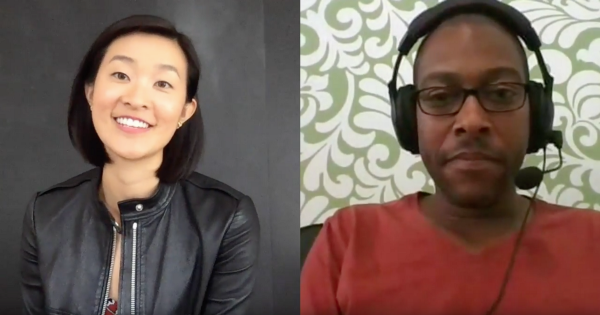
It would be like, “Oh my god, I was just telling you transparently what I was doing, and instead of you being, ‘Okay, cool, thank you, I guess you’ll tell me when there’s other things that I should know.’ People are going to freak the fuck out. It’s a great example of times where being transparent could work against our objectives and goals. I think there are times where transparency can come back to bite you. You’ve just got to know your population, and your team, and only you know what you’ve been saying to your team the whole time.
If I was out there saying, “We’ll be transparent about everything that happens in the company,” that’s very different than if I’m like, “We’ll be as transparent as we can be at the time. But I will never intentionally not tell you something if I can avoid putting myself in a situation like freaking the company out before any decisions are made.”
Claire: Right. I think you bring up such a good point, which is to say, do you have transparency for the intention of the good of the company. Like you were saying, sometimes it’s going to hurt people, and that might happen. But on the large scale things, how can transparency actually help the good of the company. And it’s not going to really help folks and the good of the company if you are, like you were saying, spooking people by letting them know the first minute you’re even just thinking about a sale, that that’s something that’s on the table. I know something I’ve talked about with a lot of business owners. Oh yeah, sorry, no go for it. Yeah, jump in.
Wil: I was just going to say, the other thing, too, is when you have to let people go. I used to be super transparent about that when we were really small and I was young and didn’t know any different. And all of a sudden, you tell somebody, “We’re letting this person go because they really weren’t blah, blah, blah, blah, blah,” and you’re like, that’s disrespectful to that person, one. I don’t need their former coworkers to know what was in that conversation. And two, people start being like, “Did I do that?” And then they start freaking out, “I’m going to be fired.” So now, instead of focusing on the work, they’re like, “Oh, my god, I’m going to get fired.” And you’re like, “What?”
I also see transparency as another one of those things where like, the way I worked on that is, I learned to say, “Here’s what our belief system is. And if we choose to part ways with someone, then you can pretty much bank on the fact that somewhere along one of these values, they A, went the opposite. That’s it.” So then I started talking more about this is what we believe and if you make that a consistent thing you talk about, it’s related to how your quarterly performance was, to why we’re restructuring, to why all of a sudden somebody’s not here anymore, it’s always coming back to these things. It gives you more of a framework to talk about you’re working towards than what that individual person did.
Claire: Right. That’s such a helpful guideline and rubric for folks. I think transparency around letting someone go is, it’s always a struggle. It’s always a struggle. I’ve definitely talked to a business owner who, just sort of assessing his population, kind of went the other way. He recognized that people were going to be wondering why was this person fired. It looked like they were doing so good on the surface. They were super popular at the company. And he realized, he talked with the person who was let go and said, “Would it be okay if I shared, and this is what I’m going to share.” And they both agreed on something and then he ended up sharing it.
But to your point, it’s one of the hardest things to figure out as a leader. Yeah, I appreciate you sharing that.
Wil: Because they got permission. That was awesome.
Claire: Yeah, exactly. I think that’s the key part is, making sure that you’re not just sort of blacklisting them, and making up a story that they’re not going to feel comfortable sharing. This idea of sort of setting the record straight, and again, for the good of the company, is big. Yeah. Thanks so much, Wil. I so appreciate all your thoughts. It’s something I definitely am taking in, and going to put into practice going forward. Yeah, I appreciate everything, and thanks for being here.
Wil: Thanks for running Know Your Company and making it awesome. It’s great. I love seeing you guys grow, and I just love seeing what comes through my inbox, and the things that I learn about my team. As we’ve grown well past the number that I thought we would ever be, I used to tell the company it would be no more than 10 people, I actually could know people at a very deep individual level when we were that size. I’ve always had it in my heart to kind of want to know people that way.
And Know Your Company has helped me to scale that a little bit. It’s helped me to know a little bit more about my team and find out what they’re working on in ways that didn’t require me to sit in one on ones all day. So just keep doing what you’re doing. I love the work that you’re doing, as well.
Claire: Ah, thanks, Wil. That made my day. Thank you so much. Appreciate it. All right. Take care. Talk soon.
